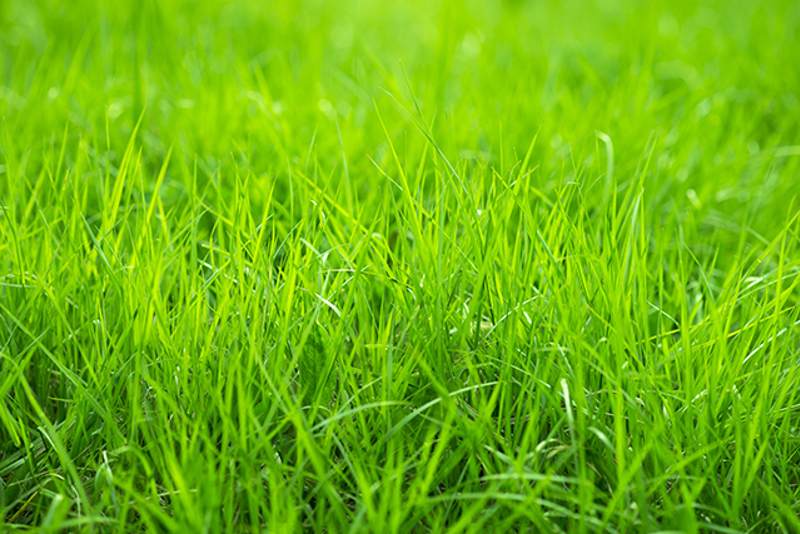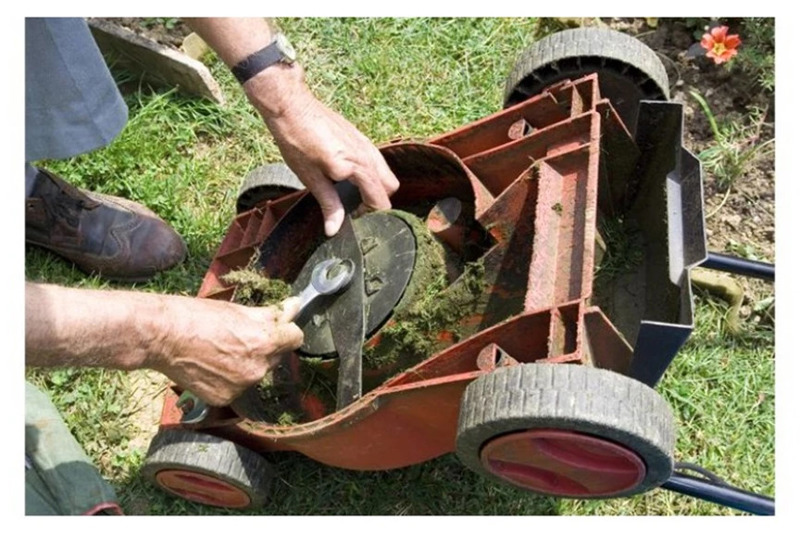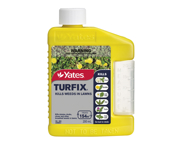Yates Account
Join now
Create a Yates account today!
Sign up to join the Yates Garden Club for monthly e-mails packed with seasonal inspiration, tips for success & exclusive promotions.
Plus if you’re a Garden Club member you can take part in the Yates Growing Community - a blog to share successes, get advice & win prizes in fun challenges along the way!

Forgot password
Enter the email address associated with your account, and we'll email you a new password.

As spring approaches, lawns start to emerge from their winter slumber.
It's time to make sure that the soil is in tip top shape and there’s enough nutrients to support all the upcoming lawn growth. Your lawn will really appreciate the late winter TLC, to help it face the busy seasons of Tiggy, Spotlight, dog toy-throwing and BBQs ahead.
Feeding
Fertilising at this time of year is a balancing act, especially if you live in a cooler, frosty area. Your lawn has been dormant over winter and wakes up gradually as the soil temperature warms up. New grass growth is vulnerable to frost damage, so applying high-nitrogen fertilisers while it's still very cold can be counter-productive; it needs a bit of patience. Late August is generally a good time to start feeding the lawn. Fortunately the development of high-performing slow release lawn foods has made it easier to navigate the transition to spring. Your lawn grass and microbial soil community underneath it are in sync with the seasons - if the grass is dormant, the microbes will also be snoozing. Because the nitrogen in slow-release fertilisers is 'unlocked' for grass by microbial action, this means the nutrition is supplied at the rate grass can use it - as soil temperature rises and everything wakes up, grass nutrition accelerates. Yates Lawn Fertiliser Quarterly is a benchmark example of these new feeds. The specially-developed tech in its formulation means that it continues to gently and gradually release nutrients for three months after application.
Yates Dynamic Lifter Organic Lawn Food is another great option for long-term feeding. It has the added benefit of improving the soil’s organic content. Organic content helps to break down clay soils and improves the soil ecosystem, which encourages earthworms, that in turn help to improve the soils porosity or drainage and air movement. This all makes it easier for your lawn to grow and root deeper into the soil.
Yates Dynamic Lifter Organic Lawn Food contains composted chicken manure with added blood and bone, fishmeal and seaweed to provide gentle slow release nutrients to encourage healthy green lawn growth.
Oversowing
When the soil temperature begins to rise at the end of August, you can thicken tired and worn lawns by over-sowing with one of the Yates Lawn Seed packs. These come in a few different varieties, Yates Tuff Grass Lawn Seed, Yates Tall Fescue Lawn Seed, Yates Sun & Shade Lawn Seed, and Yates Kikuyu Lawn Seed, all formulated to suit different lawn types and situations. If you want to get stuck in earlier, go for Yates Sow Anytime Lawn Seed, which will germinate at soil temperatures above 3℃.

Weed Control
If weeds have taken hold in your lawn over winter, you can easily control them with a selective herbicide. This is the type of weedkiller that removes weedy invaders without harming the lawn grass.
Typical examples of broad-leafed weeds are clover, dandelions, capeweed, clover and thistles. Yates Turfix Lawn Weed Spray Concentrate is our go-to choice to cull these weeds, and it plays nicely with common NZ lawn types like Fescue, Browntop, and Ryegrass.
Moss Control
If your lawn hasn't stayed thick and healthy over winter, you might find moss is crowding out the grass. Late winter to early spring is an ideal time to keep moss in check. Yates Weed 'n' Feed Mosskiller & Fertiliser is easy to apply to lawns (be sure to read the pack instructions about use around paths and driveways, as it can stain concrete - the good news is staining is easy to avoid).
Mower Maintenance
Now's a great time to get the mower serviced. Dull mower blades tear and rip the grass – if you look at the ends of mown grass leaves, you’ll notice little strings of fibre on the cut end where it's frayed and damaged. That’s a signal you’re overdue for sharpening your blades! Sharp mower blades make a cleaner cut and cause less stress to the grass; helping it recover faster. Also, don't mow a wet lawn, it tears and damages the grass pretty much like a dull mower blade.
















Share
Share this article on social media